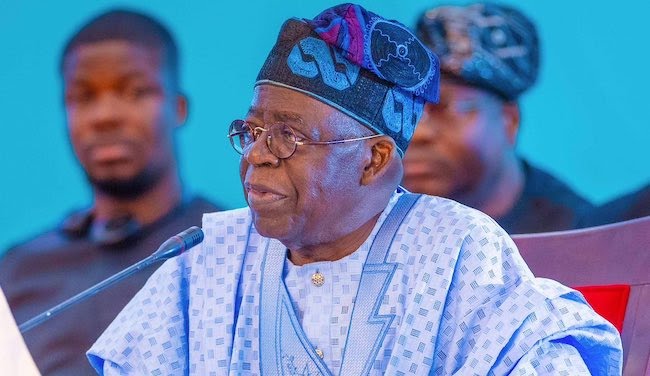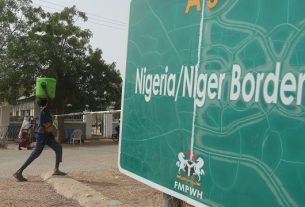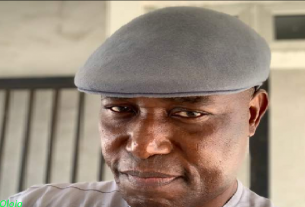By Yohanna Bwala
Since the return of democracy to Nigeria in 1999, one of the biggest, most contentious topics of public discourse has been the legitimacy and functionality of the current constitution under which the nation is governed. As it is with any document drafted by a human being, it is bound to lose relevance, in parts or holistically, as time passes, and new facts become available. Thus, the agitation is for the birth of a new constitution that captures the aspirations of the people and tackles the nation’s present-day challenges. Though the constitution has undergone several alterations since coming into existence, these alterations were not holistic.
It is exciting seeing the coming together of eminent elder statesmen, intellectuals and leaders of thought from across the nation, The Patriots, under the leadership of the former Secretary-General of the Commonwealth, Chief Emeka Anyaoku, proposing a total overhaul of the current constitution, and the drafting of a new true people’s constitution.
With the challenges Nigeria faces today, it is only fair that the document be reviewed and amended to adapt to the nation’s current challenges, because life itself is dynamic. As noble and commendable as this move is, it comes with a lot of scepticism from certain quarters. Undoubtedly, the item on their list of resolutions for review that would most likely be the most contentious is the return to a decentralised true fiscal federalism, where all states are allowed to carry their own weights, by harnessing resources within their jurisdiction, and contributing a fraction to the Federal Government to support the smooth running of federal services. Some have called to question the timing of such a pursuit, but there is no wrong time to do the right thing, most especially something that is long overdue, like fixing an imperfect document that determines the welfare of millions of people.
The Patriots might have noble intentions for pursuing such an endeavour, but since the final decision makers are the politicians in the legislature and the executive, such a call would naturally be subjected to political considerations. And once politics is thrown in the mix, naturally, controversy would overshadow the benefits therein. Politicising a task as critical as this would definitely end up creating more problems that would ultimately lead to a stalemate.
Following the closely contested nature of Nigeria’s last general elections that produced the current President, Bola Tinubu, it is understandable, in the Nigerian context, how political activities are already in top gear towards the next general elections. It is believed that the opposition politicians are encouraged by the slim margin of victory in the last presidential elections, thereby believing in the beatability of the current President. This has distracted political office holders across party lines, prioritising politicking over the issues of governance. This can be seen through the shopping for defectors by the governing party at the centre and the coalition forming by major opposition figures. All these are happening 26 months into a 48-month tenure of the current political dispensation. And with the recent passing of the former President Muhammadu Buhari, the stakes have gotten even higher, and as usual, governance is at risk of suffering neglect. As distasteful as this is, it is a reality that has characterised the Nigerian political terrain. Politics ought to go beyond winning elections and keeping oneself relevant in the political arena; it should be about using the powers bestowed upon the office holder by the constitution in making a positive impact in the lives of those without the means to change their own circumstance. This view might come across as naivety in the Nigerian political context, but we can’t all go crazy at the same time.
With the current revenue sharing formula and the dependence of the nation on oil revenues, if the system were to revert to a decentralised fiscal federalism, over 50 per cent of the states of the federation are at risk of experiencing total collapse in no time, as their current GDP figures wouldn’t take care of their expenditure bill. Knowing the natural human survival instinct and the tendencies of Nigerian politicians, the response of those state executives whose states are to be affected by that level of change would be to summon members of the national assembly from their states so as to frustrate that aspect of the constitutional amendment. When politics is used to frustrate national development, it is the fortune of the nation that would ultimately suffer.
With the high-stakes political atmosphere in Nigeria now, it is almost certain that states that would be affected by restructuring the federation along resource-sharing modalities would dig in and oppose such a reform. This would lead to political negotiations, and compromises would be made with political considerations taking precedence. During the campaigns leading to Nigeria’s general elections in 2023, the then top three contenders: Senator Bola Tinubu, Alhaji Atiku Abubakar, and Mr Peter Obi, all promised to restructure the country, if elected. How determined is the President to get this done, and to what extent would the nation’s governance architecture be restructured?
In my view, those states with questionable viability prospects post a restructured Nigeria have nothing to fear if they take the right steps today. They should take advantage of the increased allocation to the states of the federation, from savings after the withdrawal of fuel subsidy, as claimed by the Federal Government. With a soaring world population and the natural human need for food, agriculture/agri-food is the new gold.
If only the political elites from those states would look within and fully harness that which God has naturally endowed their states with, they, within a functional federation, would greatly contribute to the nation’s non-oil export income. Solid mineral development would take a longer time frame and a lot more capital investment to fully harness, whereas an agricultural revolution is the low-hanging fruit that those states can leverage. With the right investment and commitment to growing the agricultural sector of their various states, it would make a lot of difference in a 3 to 5-year time frame.
Mexico, with a population of 129.7 million and a developed agricultural sector, was a net exporter of agri-food and beverage products in 2023, with a trade surplus of $7.8bn (exports: $51.8bn, imports: $44.0bn). Nigeria has the potential to surpass these figures if only the leadership were to fully commit to such an endeavour.
Aside from the need for investment in mechanised, large-scale farming, there is a need to invest in food processing and packing facilities to curb wastage resulting from glut. This would guarantee the maximisation of each product’s value chain benefit. The various state governments can set up these facilities and charge farmers a fee for processing and packaging. This would guarantee quality control and make sure harvests meet the standard for export and local demand. When the states make this successful, it would naturally attract the interest of the private sector. This would unlock the potential of the agricultural sector and ultimately spur healthy market competition between the various states, and Nigeria would be the winner. All these depend on securing the hinterland and making sure farmers are safe to access their farmlands.
The review and amendment of the Nigerian constitution is long overdue. The political leadership of the country should stop postponing a national duty as critical as this, all in a bid to maintain a system that doesn’t work for anyone but themselves. The question now is: would President Tinubu have the courage to take this on during his first tenure, or would he, like all other politicians, hope to secure a second tenure first, before taking on such a critical task on the journey to nationhood?
Bwala writes from Calgary, Alberta





